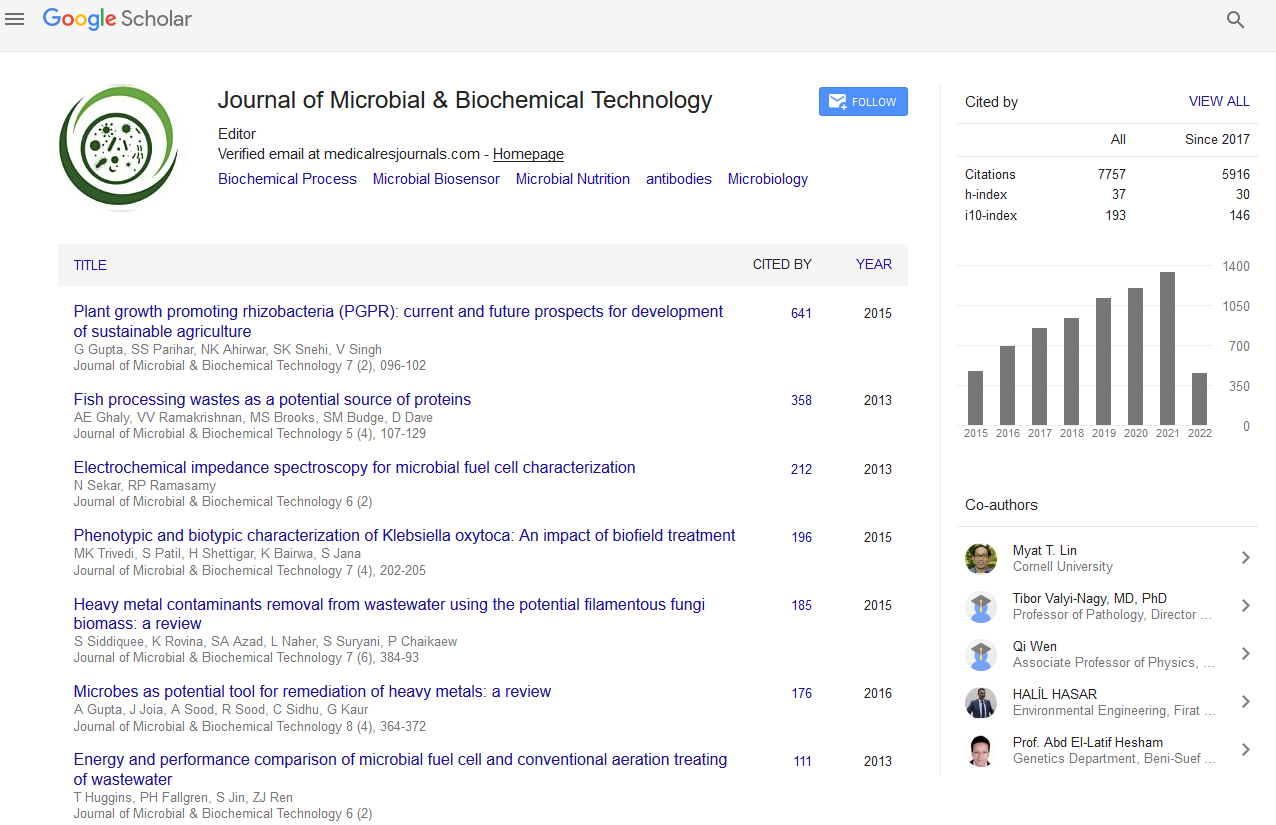PMC/PubMed Indexed Articles
Indexed In
- Academic Journals Database
- Genamics JournalSeek
- Academic Keys
- JournalTOCs
- China National Knowledge Infrastructure (CNKI)
- Scimago
- Access to Global Online Research in Agriculture (AGORA)
- Electronic Journals Library
- RefSeek
- Directory of Research Journal Indexing (DRJI)
- Hamdard University
- EBSCO A-Z
- OCLC- WorldCat
- SWB online catalog
- Virtual Library of Biology (vifabio)
- Publons
- MIAR
- University Grants Commission
- Geneva Foundation for Medical Education and Research
- Euro Pub
- Google Scholar
Useful Links
Share This Page
Journal Flyer

Open Access Journals
- Agri and Aquaculture
- Biochemistry
- Bioinformatics & Systems Biology
- Business & Management
- Chemistry
- Clinical Sciences
- Engineering
- Food & Nutrition
- General Science
- Genetics & Molecular Biology
- Immunology & Microbiology
- Medical Sciences
- Neuroscience & Psychology
- Nursing & Health Care
- Pharmaceutical Sciences
Abstract
Synechocystis Specifically Inhibits Growth of Ralstonia eutropha in an Artificial Microbial Consortium
Michael L Fisher and Michael L Fisher*
Petroleum derived plastics are a major contributor to global pollution. There is an urgent need for biodegradable, sustainable plastic alternatives. Cyanobacteria have been studied extensively for photosynthetic production of biofuel precursors including alkanes and free fatty acids. However, large scale production has been slow to emerge from these technologies. Here, we wished to evaluate alternative uses for engineered strains of the cyanobacteria Synechocystis PCC 6803 (6803). We investigated the feasibility of using wild type and fatty acid secreting strains of 6803 to support the growth of Ralstonia eutropha. This organism is capable of producing polyhydroxyalkanoates (PHAs), which can be used in bioplastic production. Traditional feedstocks for R. eutropha include palm oil and other biological precursors that compete with cultivatable land, pitting potential bioplastic production against agricultural demands. Since PHAs are of great interest as plastic alternatives, we co-cultured R. eutropha and 6803 strains in the minimal medium BG-11 in an attempt to create carbon neutral PHA from R. eutropha. Surprisingly, we observed inhibition of R. eutropha growth in co-culture with Synechocystis but not another cyanobacterium suggesting further modification of Synechocystis is necessary for use as a feedstock.
Published Date: 2020-05-05; Received Date: 2020-03-11


